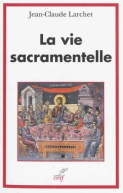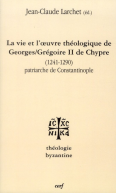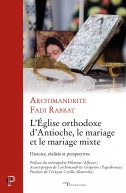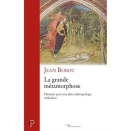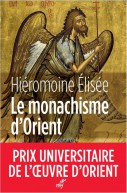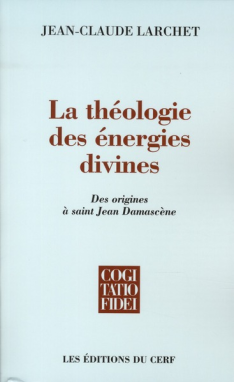
La Théologie des énergies divines - CF 272
Collection Cogitatio Fidei - N° 272
479 pages - févr. 2010
35,00€
La distinction entre l'essence et les énergies divines a fait l'objet d'une élaboration et d'une précision remarquables dans la théologie de saint Grégoire Palamas (XIVe siècle) et occupe une place considérable dans la théologie et la spiritualité de l'Église orthodoxe, tandis que la théologie de l'Église latine non seulement est restée étrangère à cette distinction mais s'est généralement montrée critique à son encontre, accusant Palamas d'innovation. Les enjeux de cette distinction sont cependant d'une grande pertinence puisqu'ils concernent notamment les questions de la nature et des limites de la connaissance de Dieu, de la nature de la grâce (créée ou incréée), et des modalités de l'union de l'homme à Dieu et de sa déification. On peut donc dire que, bien que ce sujet n'y soit guère abordé, l'avenir du dialogue œcuménique en dépend aussi. La question de la représention chrétienne de la notion d'énergie(s) divine(s) est importante également par rapport à des représentations parachrétiennes ou non chrétiennes de cette notion que l'on a pu observer dans certains courants philosophiques et religieux du Bassin méditerranéen, du Moyen-Orient ou de l'Extrême-Orient, de l'Antiquité et du haut Moyen Âge, et qui resurgissent de nos jours dans certains courants spiritualistes qui s'en inspirent. Cette étude a pour but de préciser la place et le sens de la notion d'énergie(s) divine(s) et de ses corrélats dans la théologie des Pères grecs de la période patristique classique, s'étendant des origines à saint Jean Damascène (VIIIe, siècle), en n'omettant pas de considérer ses racines scripturaires et ses occurrences philosophiques dans l'Antiquité et durant la même période.
--
The distinction between divine essence (Greek ousia) and divine energies (Greek energeiai) received remarkable elaboration and precise definition in the theology of Saint Gregory Palamas (14th century). This notion holds an important place in the theology and spirituality of the Orthodox Church, while the Roman Church has not only remained detached from that distinction, but has been generally critical of it, accusing Palamas of innovation. Yet the implications are of great consequence, since they concern questions of nature and the limits of our knowledge of God, of the nature of grace (created or uncreated), and the circumstances of the union between man and God and his deification. One might even say, although the subject is hardly ever raised, that the future of the ecumenical dialogue also depends on it. Christian representation of the notion of divine energy (or energies) is also important in relation to para-Christian or non-Christian representations observable in certain philosophical or religious currents of the Mediterranean Basin, the Middle East and the Far East, in Antiquity and the early Middle Ages; which are now resurfacing in some spiritualist movements that draw their inspiration from them. The aim of this study is to define the role and the meaning of the notion of divine energy (or energies) and its correlations in the theology of the Greek Fathers of the classic patristic period, spanning from the beginnings to Saint John of Damascus (8th century); not forgetting the scriptural roots and philosophical incidences in Antiquity and during that same period.
- Dimensions : 135x215
- ISBN : 9782204090087
- Poids : 610 grammes
DU MÊME AUTEUR
Divinisation de l'homme selon saint Maxime le Confesseur (La) - CF 194
de Jean-Claude Larchet
768 pages - mars 1996
> VOIR TOUS LES LIVRES DE l'AUTEUR
DANS LA CATÉGORIE INTRODUCTION AUX CHRISTIANISMES
Tradition grecque de la Dormition et de l'Assomption de Marie (La)
256 pages - avril 2003
Beauté salvatrice - Mère Marie (Skobtsov) (La)
Peintures - Dessins - Broderies
de Xenia Krivochéine
112 pages - sept. 2012

